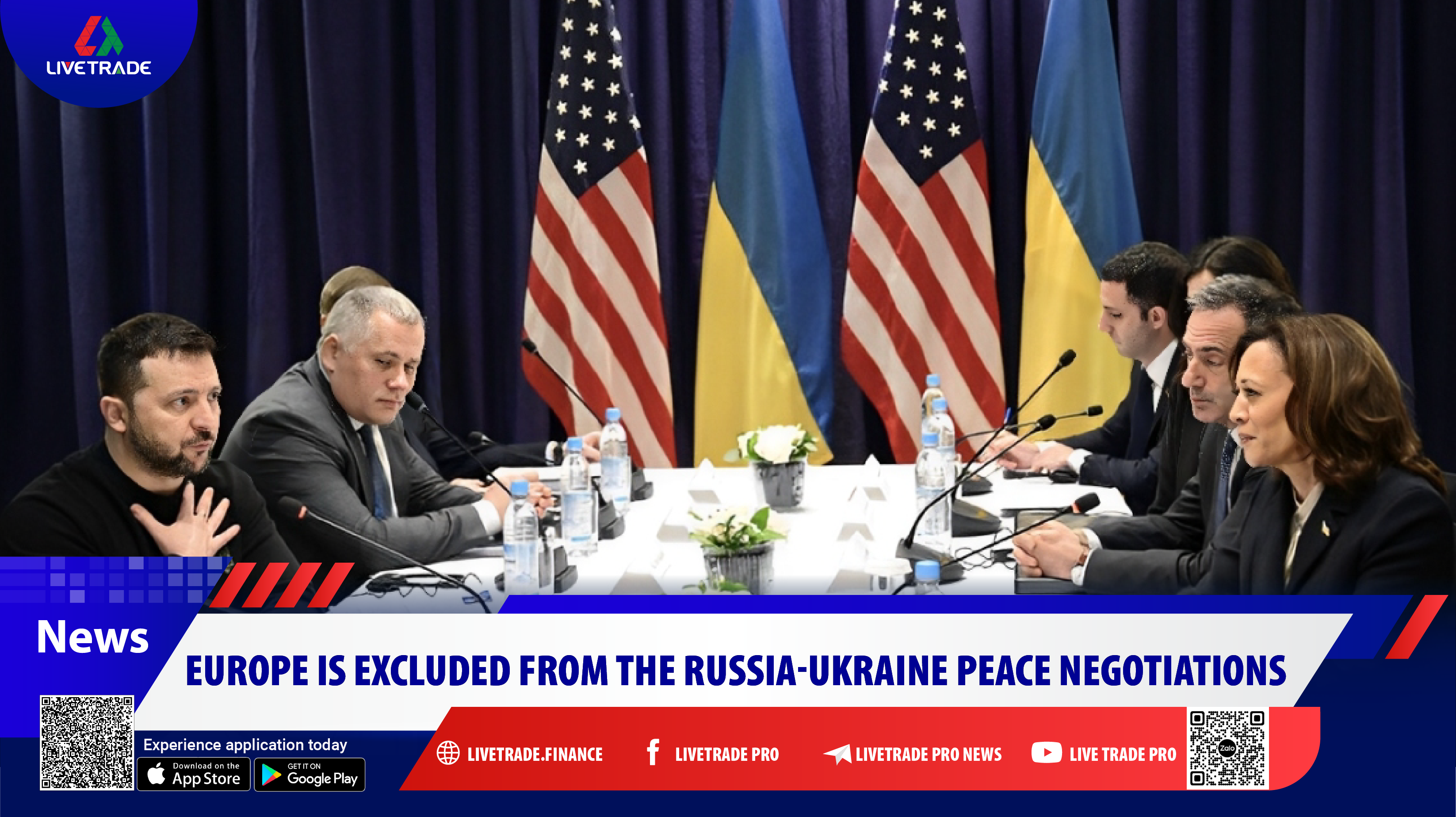The Russia-Ukraine conflict continues to escalate, with Russia steadfast in its refusal to concede any territory and excluding Europe from peace negotiations. Livetrade Pro are the latest developments:
1. Update on the Russia-Ukraine Conflict (February 18)
The conflict has intensified with drone attacks and assaults on critical infrastructure. Russia has fully occupied Fyholivka in eastern Ukraine and continues military strikes against Ukrainian targets. Peace talks have made no progress, with Russia rejecting territorial concessions to Ukraine, while Ukraine seeks stronger support from international partners.
2. Russia Maintains Stance on Territorial Integrity, Excludes Europe from Negotiations
Russia has declared its refusal to concede any territory and has excluded European nations from negotiations concerning the Ukraine conflict. This announcement coincides with high-level talks between the U.S. and Russia in Saudi Arabia. Russian Foreign Minister Sergei Lavrov stated that the meeting primarily aims to improve U.S.-Russia relations and is unrelated to territorial negotiations. European leaders are concerned about their exclusion from the talks, with EU leaders convening in Paris to discuss their role in the ceasefire process.
3. U.S. and Russia Prepare for Summit Between Presidents Trump and Putin
The U.S. and Russia are preparing for a summit between President Donald Trump and President Vladimir Putin in Saudi Arabia. The discussions are expected to focus on the Ukraine issue and the political ramifications of decisions by both countries. However, some European nations express concern that this summit may diminish their influence in Ukraine conflict negotiations.
4. Informal Ukraine Summit in Paris Ends Without Joint Statement
An informal summit on Ukraine held in Paris concluded without a joint statement. European leaders discussed security issues and the Ukraine conflict but failed to reach consensus on deploying peacekeeping forces in Ukraine. President Macron declined to comment, while European leaders expressed concerns about the lack of agreement in resolving the crisis.
5. Israel Announces Withdrawal from Lebanon but Will Maintain Presence at Five Strategic Points
Israel has announced its withdrawal from Lebanon ahead of the February 18 ceasefire deadline but will retain five strategic positions along the border. This measure aims to maintain surveillance and prevent attacks from Hezbollah. Lebanon opposes the delayed withdrawal, asserting that Israel has not fully honored its commitments. Tensions remain high following border conflicts since October 2023.
6. Israel Establishes Special Agency to Assist Palestinians Relocating from Gaza
Israel has announced the establishment of a special agency to assist Palestinians in “voluntarily” relocating from Gaza, providing transportation to other countries. This move has sparked mixed reactions, with many concerned that it could escalate regional tensions and lead to long-term political consequences.
7. Iran Asserts It Will Not Negotiate with the U.S. Under Pressure
Iranian Foreign Minister Hossein Amir-Abdollahian has asserted that Iran is not willing to engage in dialogue with the U.S. under threat or pressure. He emphasized that Iran is only willing to participate in talks if the U.S. changes its strategy and respects Iran’s principles, including lifting sanctions and returning to the nuclear agreement.
8. Sudan Declares Control Over Final Strategic Area of Rapid Support Forces
The Sudanese Armed Forces have announced their control over the Kafouri area, the last stronghold of the Rapid Support Forces in the capital, Khartoum. This marks a significant turning point in the struggle for government control, although the Rapid Support Forces have not yet shown signs of surrender.
9. OPEC+ May Delay Production Increase; Russian Official Denies Discussions on the Plan
OPEC+ is considering postponing the planned increase of 120,000 barrels per day in April due to low oil demand and to support oil prices. If delayed, this would be the fourth time the alliance has postponed production increases since 2022. One of the main reasons is to maintain stable prices and avoid oversupply. However, Russian Deputy Prime Minister Alexander Novak has denied that there have been discussions within OPEC about this plan.


